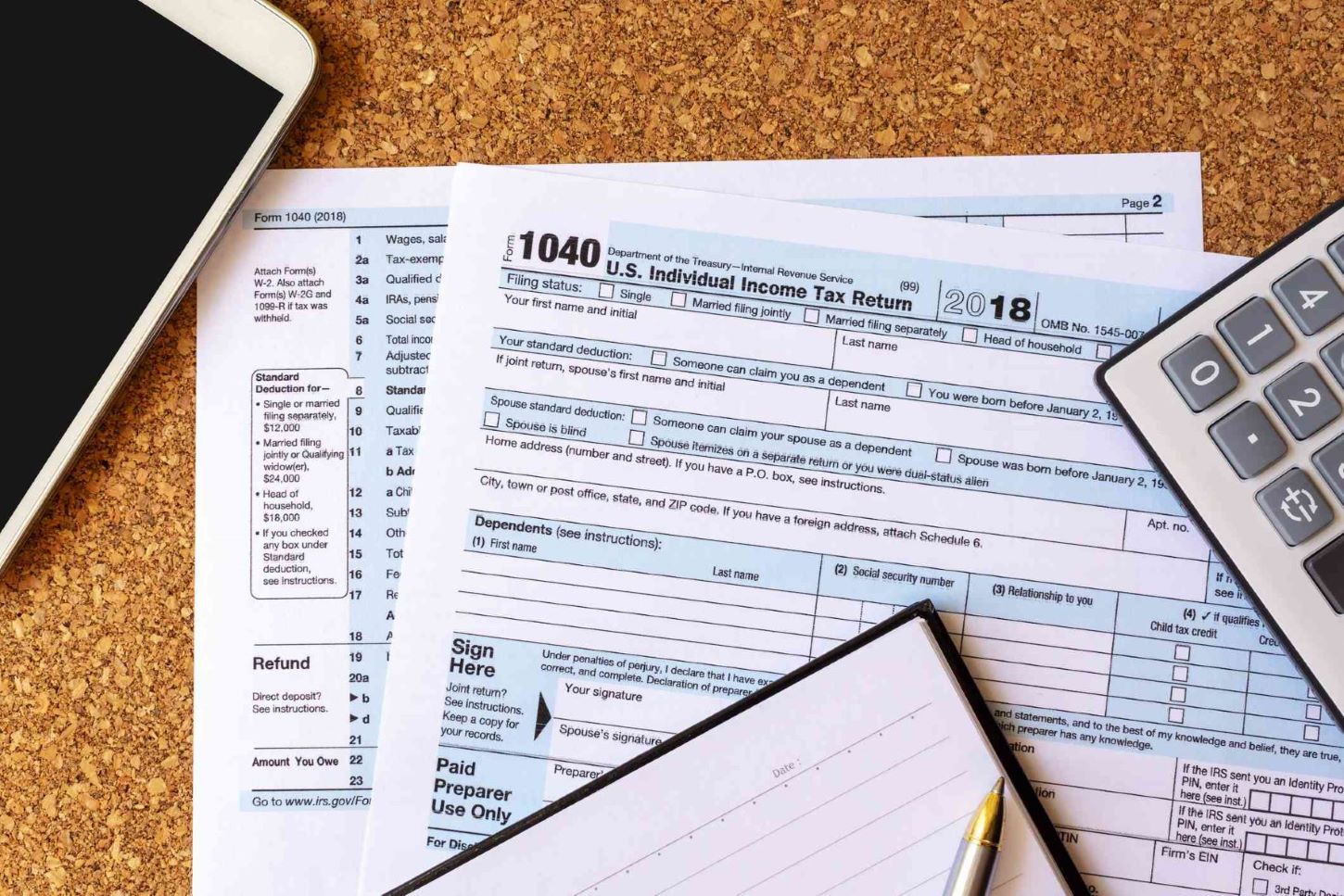

Finance
How Long Does A Short Sale Affect Your Credit
Published: January 4, 2024
Learn how a short sale impacts your credit in the world of finance and what you can expect for your credit score.
(Many of the links in this article redirect to a specific reviewed product. Your purchase of these products through affiliate links helps to generate commission for LiveWell, at no extra cost. Learn more)
Table of Contents
Introduction
Short sales can be a viable option for homeowners facing financial hardships and struggling to pay their mortgage. This process involves selling a property for less than the amount owed on the mortgage, with the lender’s approval. While a short sale can help homeowners avoid foreclosure, it can also have significant implications for their credit scores.
In this article, we will explore the impact of short sales on credit scores and how long they stay on your credit report. We will also discuss the factors that can affect your credit score after a short sale and provide tips on how to rebuild your credit.
Understanding the effects of a short sale on your credit is essential for making informed financial decisions. Whether you are considering a short sale or have already gone through the process, knowing how it will impact your credit score can help you plan for the future.
Keep in mind that every individual’s credit situation is unique, and there may be variations in how a short sale affects credit scores based on factors such as previous credit history and overall financial health. However, by understanding the general principles behind short sales and credit scores, you can better navigate this challenging financial situation.
Understanding Short Sales
A short sale is a real estate transaction in which the homeowner, with the approval of the mortgage lender, sells the property for less than the outstanding mortgage balance. It is often pursued as an alternative to foreclosure when the homeowner is unable to keep up with mortgage payments and owes more on the loan than the property’s current value.
The process of a short sale typically involves the following steps:
- Financial hardship: The homeowner experiences a significant financial hardship, such as a job loss, medical expenses, or divorce, making it difficult to continue making mortgage payments.
- Contacting the lender: The homeowner contacts the mortgage lender to discuss their financial situation and explore the possibility of a short sale.
- Listing the property: The homeowner works with a real estate agent to list the property for sale, typically at a price below the outstanding mortgage balance.
- Receiving an offer: A buyer submits an offer for the property, which is contingent upon the lender’s approval of the short sale.
- Lender approval: The lender reviews the homeowner’s financial circumstances and the buyer’s offer to determine whether to approve the short sale.
- Closing the sale: If the lender approves the short sale, the transaction can proceed to closing, where the property is transferred to the buyer.
It is important to note that a short sale is a complex process that requires the involvement of various parties, including the homeowner, the lender, real estate agents, and potentially a short sale negotiator or attorney. Each step of the process must be carefully managed to ensure a successful outcome.
While a short sale can provide homeowners with a way to avoid foreclosure and potentially reduce the negative impact on their credit, it is not without consequences. The impact on credit scores is one consideration that homeowners must thoroughly understand before deciding to pursue a short sale.
Impact of Short Sales on Credit Scores
A short sale can have a significant impact on your credit scores. While the exact impact may vary depending on individual circumstances, it is generally considered a negative event by credit scoring models.
When a short sale is reported to the credit bureaus, it will typically be reflected on your credit report as a “settled” or “paid less than the full balance” status. This can result in a noticeable decrease in your credit score, potentially lowering it by 100 points or more.
One of the main reasons why short sales have a negative impact on credit scores is because they involve not fully repaying the original mortgage balance. Credit scoring models consider this as a sign of financial distress and a failure to fulfill your repayment obligations.
The impact on your credit scores may also depend on how your lender reports the short sale. Some lenders may report it as a “charge-off” or “debt settlement,” which can have a more significant impact on your credit than others reporting it simply as a “settled” account.
It is important to understand that the impact on your credit scores doesn’t end with the initial decrease. The presence of a short sale on your credit report can negatively affect your creditworthiness for years to come.
Lenders and creditors view a short sale as a significant derogatory mark on your credit history. It can make it more challenging to obtain new credit, such as loans or credit cards, and may result in higher interest rates or stricter terms when you are approved.
However, it is worth noting that the impact of a short sale on credit scores is typically less severe than that of a foreclosure. A short sale demonstrates a proactive effort to resolve your debt, which can be viewed more favorably by lenders compared to a foreclosure, where the lender takes possession of the property.
Now that we understand the impact a short sale can have on credit scores, let’s dive into the duration of time that a short sale stays on your credit report.
How Long Does a Short Sale Stay on Your Credit Report?
The duration a short sale stays on your credit report depends on how it is reported by the lender and the credit reporting agencies. In general, a short sale can stay on your credit report for up to seven years.
When a short sale is first reported to the credit bureaus, it will be noted on your credit report as a negative entry, indicating a settlement or payment made for less than the full balance. This negative entry will remain on your credit report for seven years from the date of the first delinquency that led to the short sale.
It’s essential to note that even though the negative entry will remain on your credit report for seven years, its impact on your credit score may lessen over time. As the short sale gets older, its influence on your credit scores gradually diminishes. This is because credit scoring models tend to prioritize more recent credit activity when calculating credit scores.
While the short sale may remain on your credit report for up to seven years, there are steps you can take to mitigate its impact on your creditworthiness and begin rebuilding your credit.
One important aspect to consider is that you should ensure that the short sale is accurately reported on your credit report. Verify that it is not misreported as a foreclosure or another more severe derogatory mark. If you find any inaccuracies, you can dispute them with the credit reporting agencies to have them corrected.
During the time the short sale is on your credit report, it’s important to engage in responsible credit behavior. Pay your bills on time, reduce your overall debt, and maintain low credit card balances. By establishing a pattern of responsible financial behavior, you can show lenders and creditors that you have regained control of your finances and are a lower credit risk.
Lastly, you can work on improving your credit scores by diversifying your credit mix and establishing positive credit references. Opening a new credit account, such as a secured credit card or a small installment loan, and managing it responsibly can help demonstrate your ability to handle credit responsibly and contribute positively to your credit scores.
Now that we know how long a short sale can stay on your credit report, let’s explore the factors that can affect your credit score after a short sale.
Factors Affecting Credit Score After a Short Sale
After a short sale, several factors can influence your credit score. Understanding these factors can help you manage your credit and work towards rebuilding your score over time.
- Payment history: One of the most significant factors affecting your credit score is your payment history. Making timely payments on your remaining debts, such as credit cards, car loans, and student loans, can help offset the negative impact of the short sale.
- Amount owed: The amount you owe on your remaining debts also plays a role in your credit score. Aim to keep your credit card balances low and work towards paying down any outstanding debts to improve your credit utilization ratio.
- Length of credit history: The length of your credit history is another influential factor. While the short sale itself will remain on your credit report for several years, maintaining a positive credit history with responsible credit management over time can help offset its impact.
- New credit applications: Applying for new credit after a short sale can impact your credit score. Each time you apply for credit, it can result in a hard inquiry on your credit report, which can temporarily lower your score. Be selective and only apply for credit when necessary.
- Credit mix: Having a diverse mix of credit accounts, such as credit cards, loans, and mortgages, can positively impact your credit score. Consider diversifying your credit mix over time, but be sure to only take on new credit if you can manage it responsibly.
It’s important to keep in mind that these factors apply to your overall creditworthiness, not just the short sale itself. While the short sale will have an initial negative impact on your credit score, maintaining good credit habits and addressing these factors can help improve your credit over time.
Rebuilding your credit after a short sale will require patience and discipline. Stay focused on managing your existing debts responsibly and taking small steps towards rebuilding positive credit history. As time goes on and you demonstrate consistent financial responsibility, the negative impact of the short sale will gradually diminish.
Now that we’ve explored the factors that can affect your credit score after a short sale, let’s discuss strategies for rebuilding your credit.
Rebuilding Credit After a Short Sale
Rebuilding your credit after a short sale is possible, although it requires time and effort. Here are some strategies to help you improve your creditworthiness:
- Pay your bills on time: Consistently making on-time payments is crucial for improving your credit. Set up automatic payments or reminders to ensure you never miss a payment.
- Reduce your overall debt: Work towards paying off any remaining debts you have, such as credit cards or personal loans. Lowering your debt-to-income ratio can positively impact your credit score.
- Diversify your credit mix: Consider opening new credit accounts, such as a secured credit card or a small installment loan. Having a mix of different types of credit can demonstrate your ability to manage various financial responsibilities.
- Keep credit card balances low: Aim to keep your credit card balances below 30% of their respective limits. High credit card utilization can negatively impact your credit scores.
- Monitor your credit report: Regularly check your credit report to ensure accuracy and identify any potential errors. Dispute any inaccurate information with the credit reporting agencies to have it corrected.
- Practice responsible credit behavior: Adopt healthy credit habits, such as using credit sparingly, paying off balances in full each month, and avoiding maxing out your credit cards.
- Be patient and persistent: Rebuilding your credit takes time and consistent effort. It may take months or even years to see significant improvement, but stay committed to your financial goals.
Remember, rebuilding credit is not an overnight process. It requires discipline, patience, and responsible financial behavior. Over time, as you demonstrate consistent positive financial habits, your credit scores will gradually improve.
Additionally, it can be helpful to seek guidance from a reputable credit counselor who can provide personalized advice and assistance in rebuilding your credit after a short sale.
By following these strategies and maintaining responsible financial behavior, you can rebuild your credit and improve your creditworthiness over time.
Finally, let’s wrap up our discussion on the impact of short sales on credit scores.
Conclusion
Short sales can have a significant impact on your credit scores, but they are often considered a better alternative to foreclosure. Understanding how a short sale affects your credit is crucial for making informed financial decisions and planning for the future.
While a short sale can lower your credit scores, it is not a permanent setback. The negative effects will diminish over time, particularly if you maintain responsible credit behavior and make timely payments on your remaining debts.
Remember that a short sale can remain on your credit report for up to seven years. During this time, it’s essential to focus on rebuilding your credit by paying bills on time, reducing overall debt, and diversifying your credit mix. Patience and persistence are key as you work towards improving your creditworthiness.
Rebuilding your credit after a short sale may require time, effort, and possibly seeking assistance from credit counselors or financial professionals. However, with careful attention to your financial habits and consistent responsible credit behavior, you can successfully recover from the impact of a short sale.
Always stay vigilant about monitoring your credit report for accuracy and disputing any errors promptly. By taking these steps, you can regain control of your credit and move forward towards a more secure financial future.
Remember, each individual’s credit situation is unique, and it’s important to consult with professionals to understand how a short sale specifically affects your circumstances. With knowledge, determination, and the right strategies, you can overcome the challenges and rebuild your credit after a short sale.














